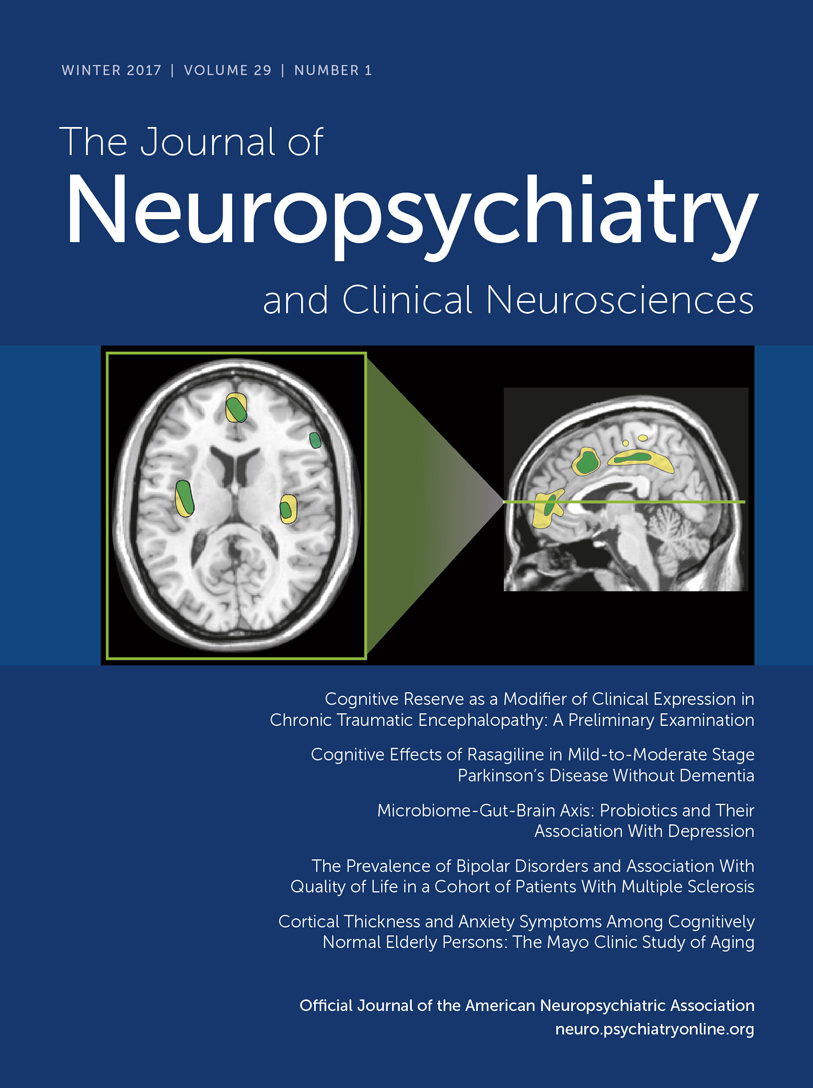Effects of Transcranial Magnetic Stimulation on the Hypothalamic-Pituitary Axis in Depression: Results of a Pilot Study
Abstract
Some studies have reported that repetitive transcranial magnetic stimulation (rTMS) applied to the dorsolateral prefrontal cortex (DLPFC) is able to induce changes in the hypothalamic-pituitary axis in subjects with major depression. The causes of these neuroendocrine effects are unknown and deserve to be studied. The authors monitored neuroendocrine hormones in 15 subjects with major depression treated by 1-Hz rTMS on the right DLPFC and explored a correlation with mood improvement. Unlike previous studies, no changes in serum cortisol, prolactin, and thyroid hormone levels were found. However, the authors did observe short-term changes in growth hormone levels in nonresponsive subjects.



